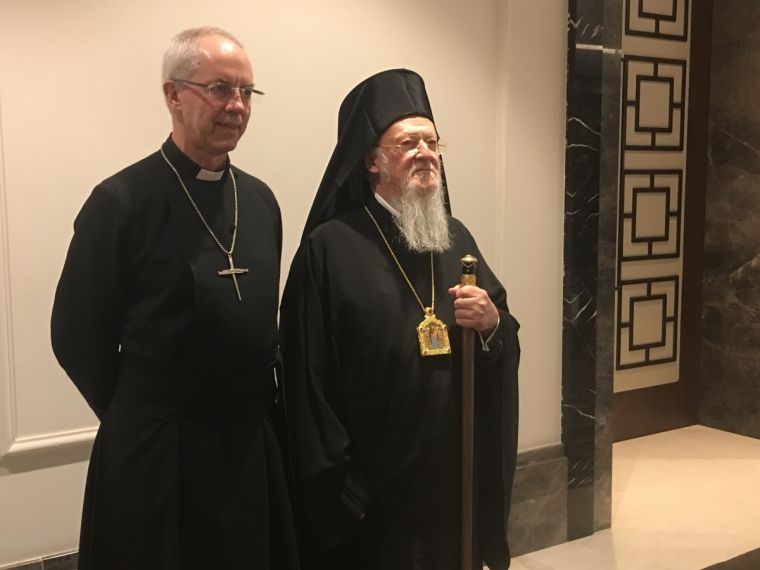Theresa May Praises Archbishop Of Canterbury's Anti-Slavery Initiative
The Archbishop of Canterbury has branded modern slavery an 'abomination to human dignity' in a joint statement with the leader of the Orthodox Church.
The UK Prime Minister praised the joint declaration – 'Sins Before Our Eyes' – signed by Justin Welby and the Ecumenical Patriarch Bartholomew of Constantinople.

Theresa May described slavery as 'one of the great human rights issues of our time' with acts that are 'horrifying in their inhumanity'.
May, the daughter of a Church of England vicar, said: 'We have a duty, as human beings and as Christians, to bring it to an end.'
She added: 'I so warmly welcome the vital work that faith communities are doing to shine a light on the evils of modern slavery and encourage the steps that must be taken to address it.'
The statement, signed in Istanbul earlier this week, repents for not doing enough to fight trafficking and urges members of both Anglican and Orthodox churches 'to become educated, raise awareness and take action'.
Up to 45.8 million people are trapped in slavery around the world, according to estimates by the International Labour Organisation and the Global Slavery Index.
The declaration describes slavery as the 'scourge against humanity' and Welby warned mass migration with thousands fleeing war and persecution gave traffickers a natural feeding ground.
'There is no religious basis or justification for a practice that commodifies human beings,' he said. 'All religious leaders need to speak out against such a practice and challenge those false prophets that seek to corrupt sacred texts to justify their warped behaviour.'
Bartholomew added: 'Whatever the Church says, whatever the Church does, is done in the Name of God and for the sake of human dignity and the eternal destiny of the human being.
'It is impossible for the Church to close its eyes to evil, to be indifferent to the cry of the needy, oppressed and exploited.
'True faith is a source of permanent struggle against the powers of inhumanity.'











